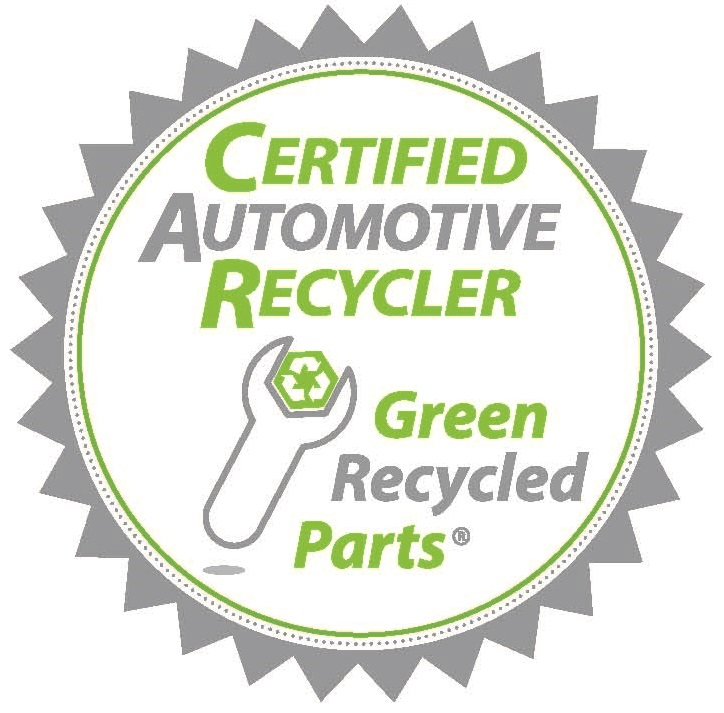While we have tried to present a summary of the essential information on this topic, you should be aware that other items, such as local regulations, may apply to you. Please read the disclaimer.
What You Need to Know
Proper waste management is an essential part of business opertion. The Resource Conservation and Recovery Act (RCRA), passed in 1976, created the framework for America’s hazardous and non-hazardous waste management programs. Materials regulated by RCRA are known as “solid wastes.” Other wastes classified under RCRA can be classified as hazardous wastes, which are subject to additional regulation.
EPA developed detailed regulations that define what materials qualify as solid wastes and hazardous wastes. Some of the waste generated by an automotive salvage facility that fit the definitions of a solid or hazardous waste are specifically excluded from the definitions. EPA excluded waste, such as used oil, to provide an incentive to recycle certain materials, because there was not enough information on the material to justify its regulation as a solid or hazardous waste, or because the material was already subject to regulation under another statute, such as batteries and mercury switches.
Regulations
In Puerto Rico the Solid Waste Authority or La Autoridad de Desperdicios Sólidos (ADS) is a government agency created under Law 70 of June 23, 1978, as amended, with the ministerial duty to establish and implement concerning public policy technical, administrative and operational aspects of solid waste management. http://www.ads.pr.gov/programas/
En Puerto Rico La Autoridad de Desperdicios Sólidos (ADS) es una agencia gubernamental creada al amparo de la Ley 70 de 23 de junio de 1978, según enmendada, con el deber ministerial de establecer y ejecutar la política pública concerniente a los aspectos técnicos, administrativos y operacionales del manejo de los residuos sólidos.
Modern lifestyles have led us to adopt patterns of consumption that affect the environment. The selection of disposable articles by the consumers and the excess of packaging by the manufacturers are very common practices in our daily life, which have a negative impact on the environment. By increasing the amount of solid waste that reaches sanitary landfill systems, disposal costs are increased daily, directly or indirectly reflected in the consumer's pocket.
Reduction at the source and reuse or reuse are practices that prevent or prevent the generation of solid waste. The US Environmental Protection Agency (EPA) defines reduction at source as the design, manufacture, purchase or use of materials to reduce the amount of solid waste generated. This practice allows to conserve resources while reducing pollution and costs of disposal and management of solid waste.
ADS Laws & Regulations have been enacted to govern these waste in Puerto Rico with specific information available on their website at http://www.ads.pr.gov/legal/otras-leyes-y-reglamentos/.
What is Solid Waste?
RCRA states that "solid waste" means any garbage or refuse and other discarded material, resulting from industrial, commercial, mining, and agricultural operations, and from community activities. Nearly everything we do leaves behind some kind of waste.
It is important to note that the definition of solid waste is not limited to wastes that are physically solid. Many solid wastes are liquid, semi-solid, or contained gaseous material.
Some waste are not defined as solid waste due to specific exclusions when managed or recycled according to the regulations, Scrap metal is one such waste with a specific set of regulations governing the management of SCRAP METAL. [§261.4(a)(13)].
Waste excluded from the definition solid waste by exclusion include:
Excluded Scrap Metal §261.4(a)(13)
Point Source Discharge §261.4(a)(2)
Used cathode ray tubes (CRTs) §261.4(a)(22)
Solvent-contaminated wipes that are sent for cleaning and reuse are not solid wastes from the point of generation §261.4(a)(26)
Other waste are specifically exempt from hardous waste regulations:
Household Hazardous Waste §261.4(b)(1)
Refrigerant Spent Chloroflurocarbon Refrigerants  §261.4(b)(12)
§261.4(b)(12)
Used Oil filters Used Oil Filters §261.4(b)(13)
Other solid waste issues that govern automotive salvage facilities have to due with RECYCLING of solid waste and occur at the state and locl levels such as ban on landfilling cardboard, tires, used oil filters or fluorescent bulbs, etc.
Related ECAR Fact Sheets
Fact Sheet Status and Disclaimer
The following compliance assistance information for the state is subject to all of the warranties and disclaimers associated with this internet website [Read full disclaimer]. Please note that this information has been submitted or will be submitted to the state agencies responsible for implementing environmental laws and regulations for their review and comment. This note is provided only for your informational purposes and does not change or alter any warranties or disclaimers, including, for example, your responsibility to seek appropriate legal or technical assistance to interpret the state's laws as needed.
The fact sheets are designed to assist automotive recyclers with operating their businesses and managing their wastes in compliance with the environmental laws in Iowa. ECAR tries to provides timely and essential information on this topic, but be aware that other items, such as local regulations and recent changes, may apply. Read the Disclaimer. To view other Puerto Rico FACT SHEETS return to the ECAR Virtual Tour.
ECAR Fact Sheet Puerto Rico SOLID WASTE




